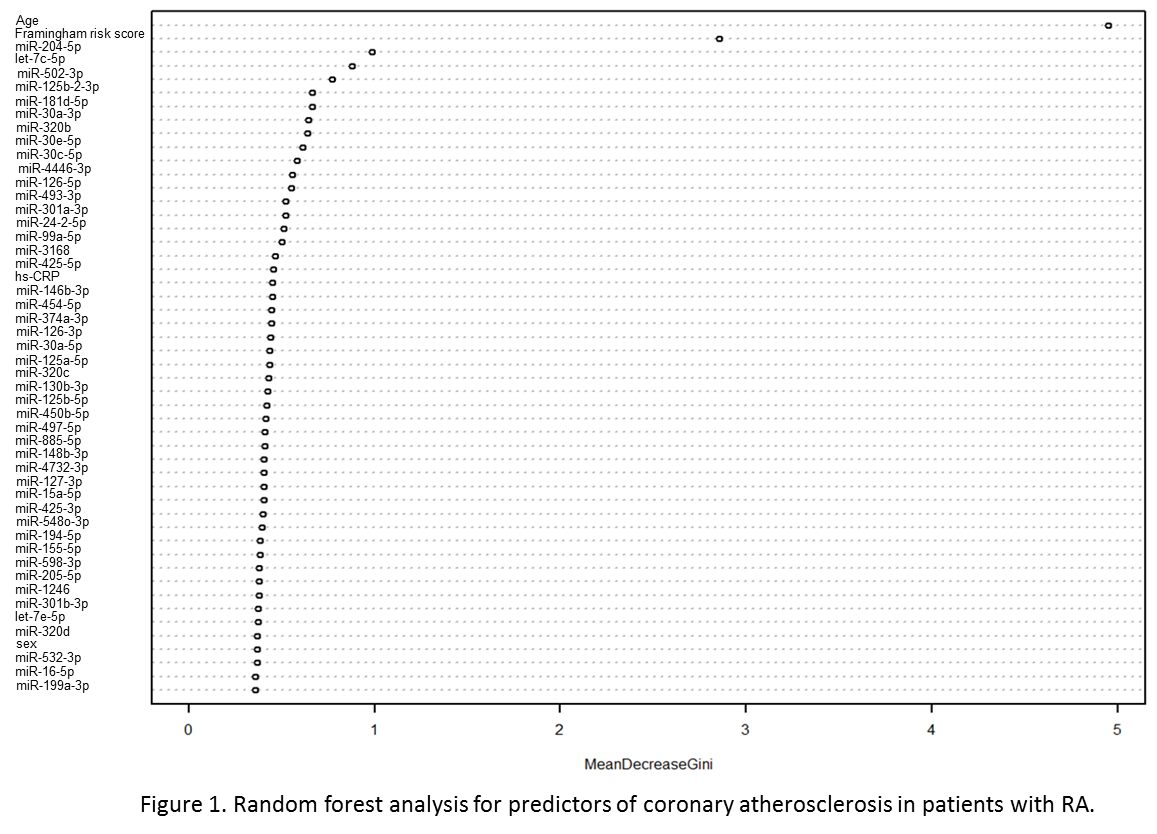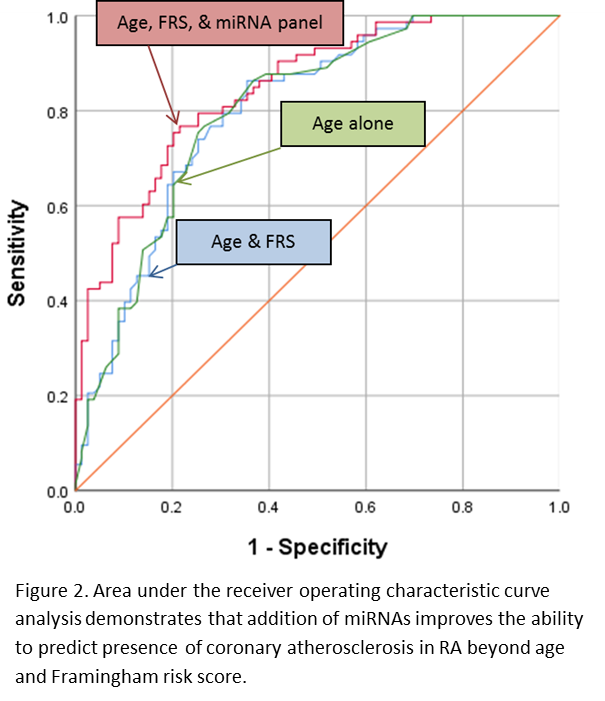Session Information
Date: Tuesday, October 23, 2018
Title: 5T088 ACR Abstract: RA–DX, Manifestations, & Outcomes IV: CV Co-Morbidities (2814–2819)
Session Type: ACR Concurrent Abstract Session
Session Time: 2:30PM-4:00PM
Background/Purpose: Small noncoding RNAs (sRNAs), such as microRNAs (miRNAs), regulate gene expression and can be used as biomarkers of disease. Patients with rheumatoid arthritis (RA) have accelerated atherosclerosis leading to excess cardiovascular morbidity and mortality. Traditional risk factors used in the general population for risk stratification are inadequate in RA. Our objective was to develop a microRNA panel which predicts presence of coronary artery atherosclerosis in patients with RA.
Methods: Plasma sRNA sequencing was performed on samples from 161 patients with RA whose Agatston scores for coronary artery calcium were previously assessed by electron beam computed tomography. The TIGER pipeline was used to quantify miRNAs. Random forest analysis including plasma miRNA expression by sRNA sequencing, age, race, sex, Framingham risk score, and high-sensitivity CRP was used to determine which covariates best differentiated between those with and without coronary calcium. The top 15 miRNAs based on random forest analysis were chosen. Logistic regression and area under the receiver operating characteristic curve analyses were used to assess the miRNA panel for prediction of the presence of coronary calcium.
Results: Age and Framingham risk score were the strongest predictors of coronary atherosclerosis (Figure 1); however, the AUC for predicting atherosclerosis was the same for age alone and for age plus Framingham risk score (AUC=0.80 (95% CI 0.73, 0.87), P<0.001). The addition of the top 15 miRNAs based on random forest analysis resulted in an improved ability to predict atherosclerosis (AUC=0.85 (95% CI 0.79, 0.91), P<0.001) (Figure 2).
Conclusion: A set of 15 plasma miRNAs improved coronary atherosclerosis prediction capacity beyond use of traditional risk factors. Further validation is necessary to confirm these findings and the use of the panel for prediction of coronary events in RA.
To cite this abstract in AMA style:
Ormseth MJ, Solus JF, Sheng Q, Ye F, Guo Y, Wu Q, Oeser AM, Allen R, Raggi P, Vickers K, Stein CM. Development of a Microrna Panel for Predicting Coronary Atherosclerosis in Rheumatoid Arthritis [abstract]. Arthritis Rheumatol. 2018; 70 (suppl 9). https://acrabstracts.org/abstract/development-of-a-microrna-panel-for-predicting-coronary-atherosclerosis-in-rheumatoid-arthritis/. Accessed .« Back to 2018 ACR/ARHP Annual Meeting
ACR Meeting Abstracts - https://acrabstracts.org/abstract/development-of-a-microrna-panel-for-predicting-coronary-atherosclerosis-in-rheumatoid-arthritis/


